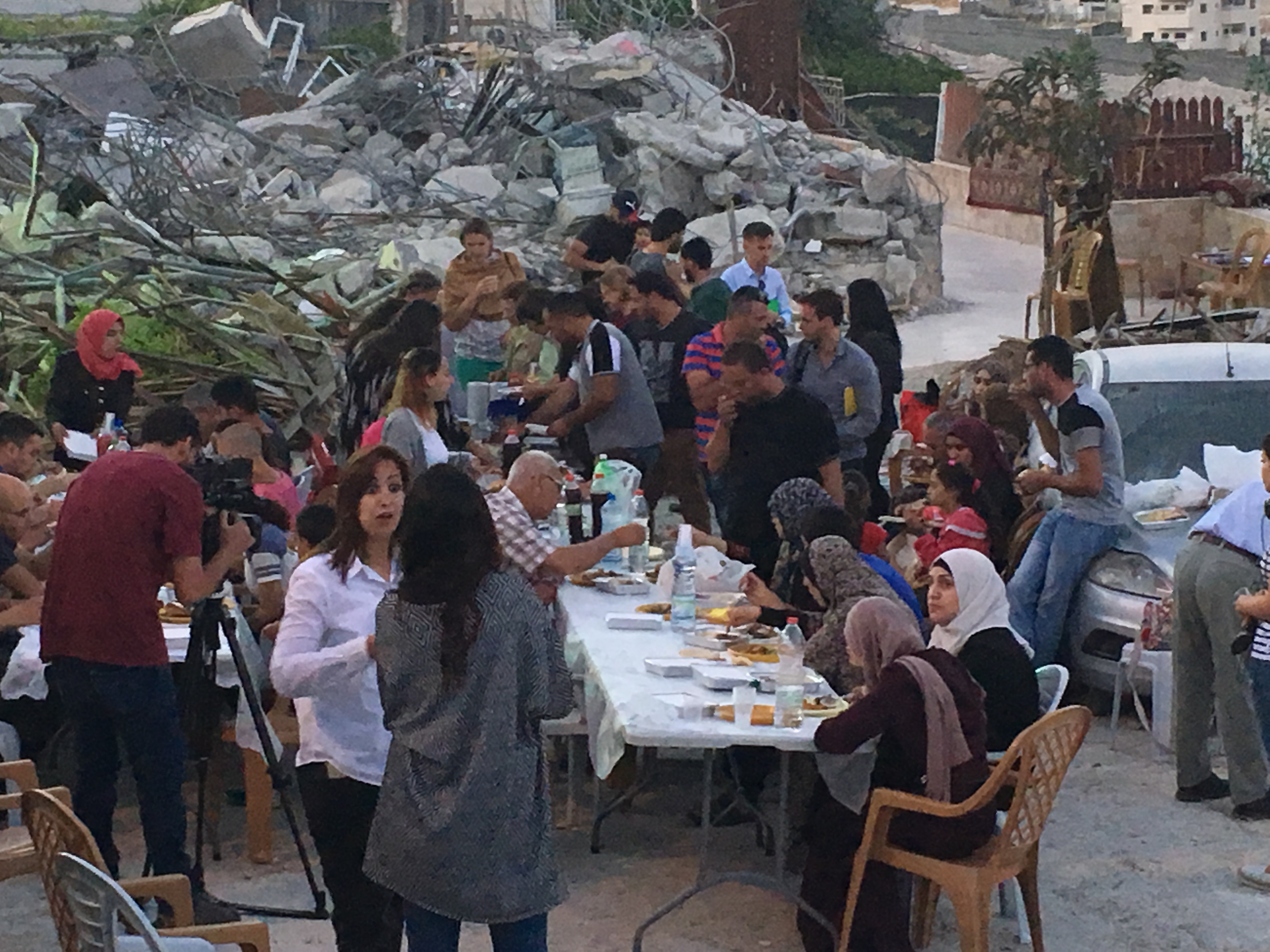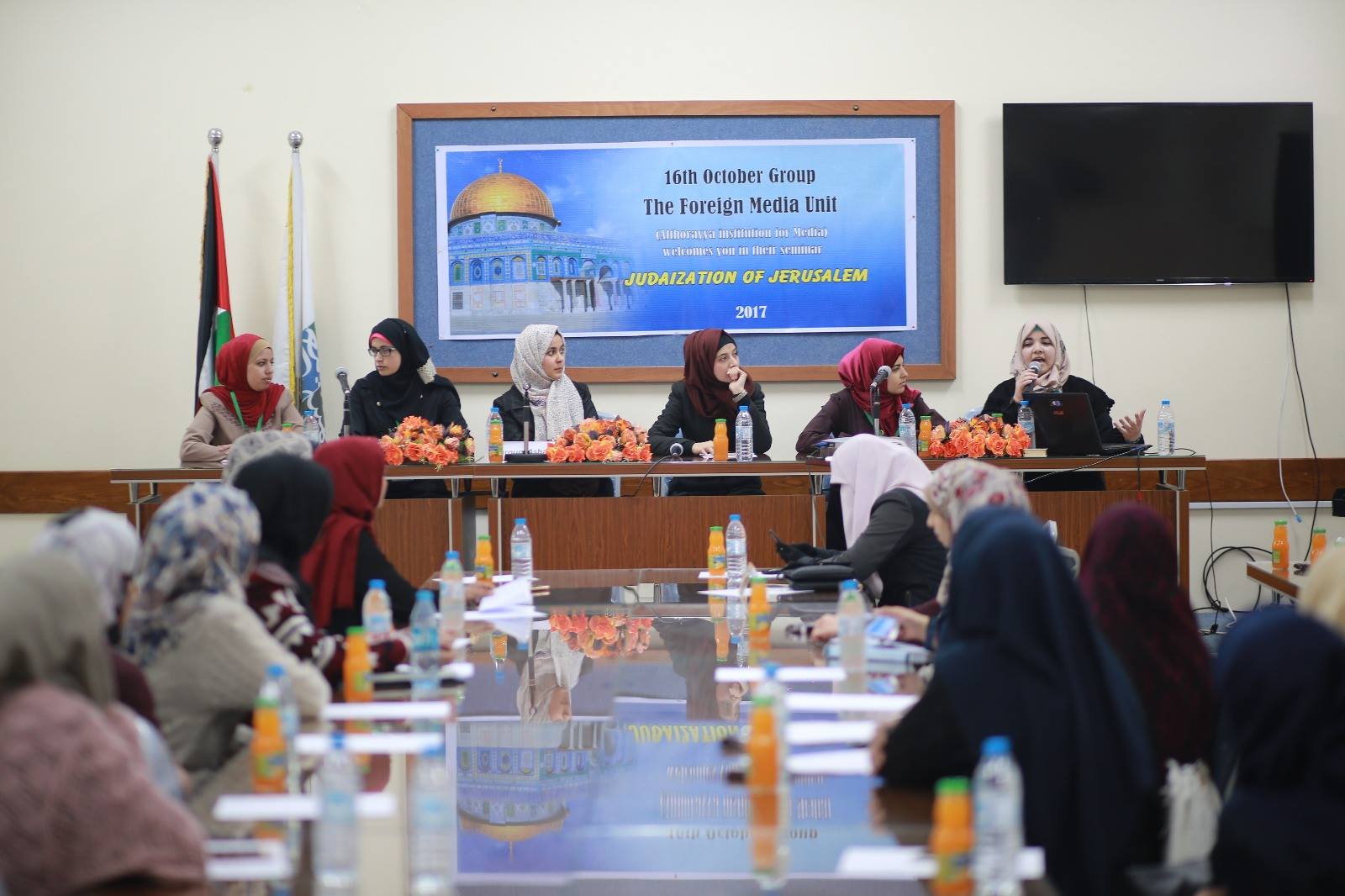Tag: Jerusalem
-
Iftar on the Rubble
14th June 2017 | International Solidarity Movement, al-Khalil team | Jerusalem, occupied Palestine Seventy people gathered in the Sur Baher neighborhood of occupied East Jerusalem for a communal solidarity Iftar on the rubble of the home of Ashraf and Islam Fawaqa. The Fawaqa home was one of nine Palestinian homes and 3 stores that were…
-
16th October Group helds a seminar about the judaization of Jerusalem
3rd March 2017 | International Solidarity Movement, Gaza team | Gaza, occupied 16th October Group (the foreign Media Unit in Athorayya association for Media ) held a seminar about the judaization of Jerusalem, on Monday 27 of February in Gaza city. the seminar aims at shedding the light on the suffering of the Jerusalemites and…
-
Two Palestinian killed in Hebron and one wounded in Jerusalem in less than 12 hours
19th September 2016 | International Solidarity Movement, al-Khalil team | Hebron / Jerusalem, occupied Palestine On Monday, 19th September 2016, two Palestinians have been gunned down by Israeli forces in occupied al-Khalil (Hebron), and one in illegally annexed East Jerusalem in less than 12 hours. Early in the morning, in the Old City of occupied…


